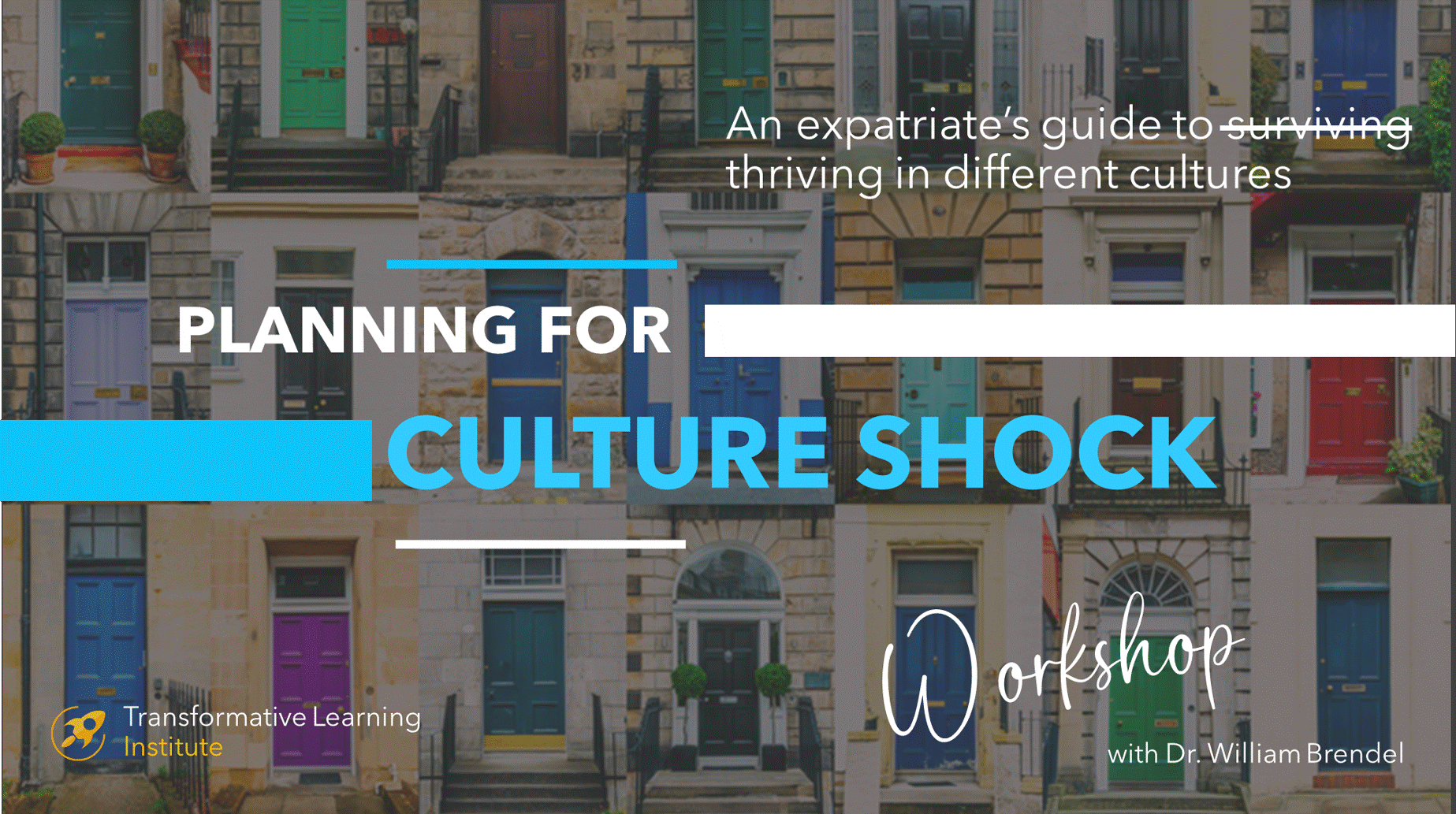Planning for Culture Shock
Give you employees the gift of direct insight, knowledge, and tools that allow them to engage and learn from unique cultural differences that exist in the workplace.

Culture Shock refers to a stressful transition period when employees move from a familiar environment into an unfamiliar one. It occurs as a result of a mismatch between your expectations (about language, customs, artifacts and norms) and the reality you face. As globalization has become a predominant aspect of organizational life, employees are tasked with quickly learning how to relate and work with fellow employees and customers who operate in different cultures around the world. This workshop addresses the central aspects of culture that cause the most distress in expats and employees who frequent other countries. These include differences in a culture's expectations regarding timeliness, directness, power, and collective vs. individual behaviors. This workshop also helps employees prepare themselves mentally for coping with the many physical and emotional side-effects of being in a different culture.
Culture shock, or Cross-cultural adjustment is a "period of anxiety and confusion experienced when entering a new culture. It affects people intellectually, emotionally, behaviorally and physically and is characterized by symptoms of psychological distress.” - National Center for Biotechnology Information
Transforming Organizational Culture wix:image://v1/f4c4b4_88b1c17ae96e4cfbbc8652650c020b4b~mv2.gif/Transforming%20Culture.gif#originWidth=1849&originHeight=1048 Equip your leaders with direct insight, knowledge, and tools that allow them to facilitate culture change at the individual and team levels of their organization in ways that lead to increased performance. It's been said that culture eats strategy for breakfast. But why? And what can leaders do to transform culture in such a way that it yields a more engaged and productive workplace? This workshop takes participants on a journey deeper than the observable workplace, to explore the dwelling place of culture: the subconscious, habitual dimensions of organizational life. In fact, culture is defined as the "shared subconscious expectations that drive behavior. This workshop provides a survey to help your participants understand elements of their culture that have a direct impact on engagement and performance. These include tendency to forgive, organizational citizenship, ethical engagement, and meaningful work. Throughout the workshop, participants are compelled to think about how they stand in relationship with their organization's culture, including how they contribute, reinforce or serve as change agents to problematic aspects of their culture.